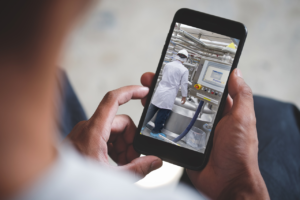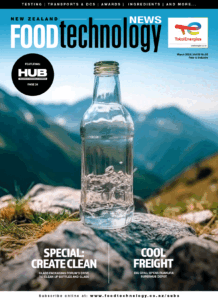
University of Canterbury Business School, Professor Pavel Castka
Smart tools such as drones, satellite imaging and artificial intelligence could be the answer to remote health and safety auditing, in a world where it’s not always possible to be physically present.
To explore these options further, a University of Canterbury-led project (in cooperation with Otago University, Jiaotong University, Xi’an Jiaotong University, Peking University, and Xi’an Jiaotong – Liverpool University in China and funded by New Zealand China Food Protection Network) is looking into how some of the methods could be used to perform the remote auditing of companies involved in food production and processing.
University of Canterbury Business School Professor Pavel Castka says the current research findings show remote auditing is becoming more popular but more work needs to be done to ensure the security and privacy of the data being collected.
“Since the pandemic and lockdowns have become part of our daily life, auditors have been using basic tools such as Zoom, Microsoft Teams and phone cameras to carry out remote audits and assessments,” Professor Castka says.
“It would happen without Covid, but the pandemic has certainly accelerated this trend. The process of adoption of technologies for testing, inspection and certification will take time. Meanwhile, we need to ensure safety of products and safety of firms’ internal processes. This is key.”
Castka believes smart technology tools will bring numerous benefits to farmers and others working in the food industry, addressing some of the concerns about the cost and time involved in compliance auditing.
“The commitment to remote auditing is real. When the pandemic is over, we will continue to see remote audits, albeit more in a hybrid form.
“This is an opportunity for firms to optimise their compliance and conformity assessment processes. For example, well design internal compliance systems can easily facilitate access for an audit to perform an audit. This can save resources for a firm.”
He also believes there will be an introduction of more sophisticated technologies such as remote sensing.
“For example, the ECOindex project develops tools to monitor biodiversity in New Zealand. The monitoring will be done using remote sensing technologies (satellites). In the context of New Zealand farming, it means that every farm can be monitored from space and in real time. Once such technologies mature, we will see changes in which accountability is addressed. It will be difficult to mask poor environmental performance.”

“[The]time to plan for it is now. As per the example with biodiversity, carbon management will go in this direction as well. And there is also an opportunity to incorporate carbon management in firm’s strategic plans. Especially for farmers – who can invest in carbon sinks to stratify their revenue streams.”
Increasing demand for transparency will also push this work along, Castka says.
“There’s also a greater need for transparency to build trust. In the near future customers could be able to view key steps in the production and supply chain of high-value agricultural products using live cameras and sensors.”
His message to New Zealand food and beverage manufacturers is simple. The time to incorporate testing, inspection and certification initiatives into your digitalisation strategy is now.

































































































